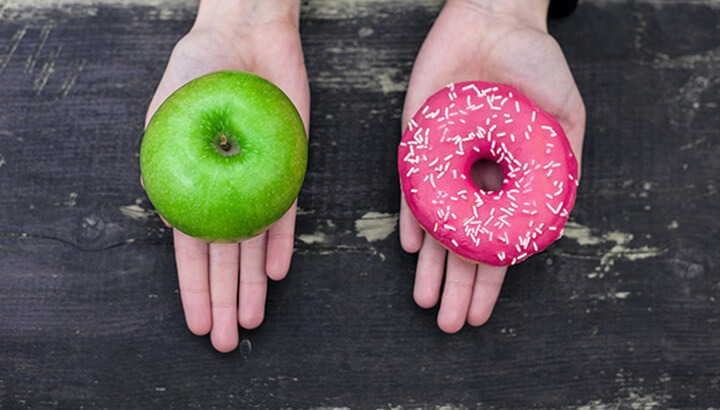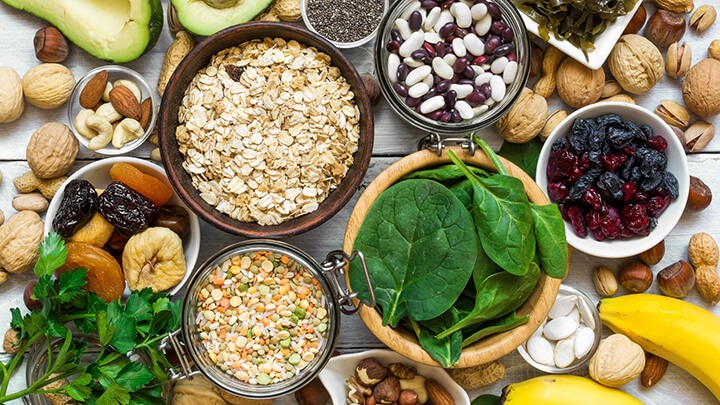Willpower is a quality most people associate with success. The ability to avoid temptation is thought to be key to sticking to a wholesome diet, staying slim, and achieving many health goals. But what if I told you that the whole concept of willpower was overrated?
Why relying on willpower is a recipe for failure
I know this is going to sound counterintuitive, but there’s actually a lot of evidence that relying on willpower alone is a recipe for failure. In a moment, I’d like to discuss some of the things you can do to improve your self-mastery, which will help you achieve your goals. But first, let’s look at some of the evidence that shows why reliance on willpower is so often misplaced.
Here’s a paradox for you — the most successful people tend to rely on willpower very selectively and as little as possible. That can’t be right, many of you may be saying, but study after study bears this out.
Interest in willpower (the ability to avoid temptation) really took off in the 1960s after the legendary psychologists, Walter Mischel, introduced his famous “marshmallow experiment,” which investigated the subject of delayed gratification.
The experimental design could not be simpler. An adult researcher offers a child one marshmallow as a treat right on the spot, but also explains to the young person that they can have two marshmallows if they delay eating the first for about twenty minutes.
As you might expect, many young children succumb immediately, but others do hold out for the two treats. Longitudinal studies that followed the subjects found that those that could delay gratification tended to be more successful later in life.
The key to avoiding temptation
On the face of it, results like this would seem to be evidence for willpower and resisting temptation. Some scientists have drawn this conclusion. But both Mischel himself and many other researchers have arrived at a somewhat more modern and nuanced view. Essentially, the idea is that the key to self-control is not to be found by exercising a reservoir of willpower, but in redefining the objects of your desire.
A story from Mischel’s own life may help explain his perspective. For years, the legendary psychologist was recognized as the world’s foremost expert on self-control. But ironically, Mischel smoked three packs of cigarettes a day. He had tried multiple times quit, but by his own admission, he was spectacularly unsuccessful in resisting the urge to indulge.
One day, when Mischel was visiting the medical school at Stamford University he happened to encounter a patient suffering from an advanced form of lung cancer. In an instant, that experience changed the way the pioneering psychologist looked at cigarettes. As Mischel explained, I changed the objective value of the cigarette. It went from something I craved to something disgusting.” He never smoked again.
This experience changed Mischel’s take on the marshmallow experiment too. He noticed that kids that delayed gratification tended to avoid eye contact with the treat and turned their attention elsewhere. Mischel also learned that they changed the way they valued the marshmallow.
As science writer Maria Konnikova explains “Mischel has consistently found that the crucial factor in delaying gratification is the ability to change your perception of the object or action you want to resist.”
The importance of reframing
These findings have very important implications for your health. So many people fail at their diets because they are relying on their willpower alone (which is a finite resource).
I cannot emphasize this last point too much. People only have so much willpower available, but the environment we inhabit is filled with an endless array of temptations. How, then, can you surmount them?
The key is to shift your perspective with some reframing:
- Drawing bright lines around habits and activities. The psychologist Kentaro Fujita explains that “The really good dieter wouldn’t buy a cupcake.” Instead, they’ll manage to figure “out a way of saying yuck instead of yum.” I’d highly encourage you to find ways of saying “yuck” at the thought of cigarettes, sodas, and processed junk food products.
- Identifying with positive habits and activities. Picturing yourself as a jogger, healthy eater, or yoga practitioner creates a positive self-image that is highly motivating. When you identify with activities (I really enjoy walking) then they cease to be chores.
- Plan and structure your life to avoid temptation in the first place. If you want to lose weight… don’t drive by a donut shop. As psychologist Brian Gall explains, “People who are good at self-control … seem to be structuring their lives in a way to avoid having to make a self-control decision in the first place.”
Takeaway
I agree with the psychologist Blair Saunders, of the University of Dundee, who describes the dependence on willpower as being akin to “relying on [the] emergency brake when you are driving your car.” It’s not the best way of stopping in normal circumstances. Instead, Saunders recommends that “You should focus on things that drive you toward your goals rather than stopping things that are in your way.”
Willpower has its place in the scheme of things. But you are far better off planning ahead so you can avoid temptation in the first place. You should be looking at setting positive goals and finding healthful activities that ultimately become an expression of who you are (and who you want to be). As psychologist Marina Milyavskaya sagely observes, “Want-to goals lead to experiences of fewer temptations. It’s easier to pursue those goals. It feels more effortless.”
Take good care,
Dr. Josh









